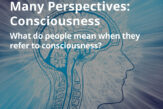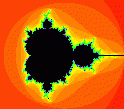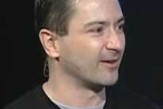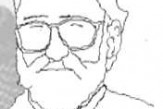Author Archive
Scicon Review
fMRI reveals large-scale network activation in minimally conscious patients
The first fMRI maps of cortical activity associated with language processing and tactile stimulation of patients in the minimally conscious state (MCS) are presented. These findings of active cortical networks that serve langua...
Scicon Review
The reticular nucleus revisited
What is the role of the thalamic nuclei in consciousness? In a recent article by Fuentealba and Steriade discusses the inhibutory neurotransmitter GABA and its role in the early sleep stages.
Scicon Review
ASSC-9 — Call for papers
The ninth annual meeting of the Association for the Scientific Study of Consciousness will be held from June 24th to June 27th, 2005, at the C California Institute of Technology. Caltech is a small and focussed research univers...
Scicon Review
The lobotomist
Today the word “lobotomy” evokes images of medical savagery: innocent lives wrecked by experimental procedures and misguided psychiatrists using the insane as guinea pigs. The man behind this controversial surgical ...
Scicon Review
Evolutionary developmental psychopathology
Clinical taxonomy will tend to reflect a nonepistemic agenda that is itself mutable according to the strictures established by prevailing norms and resources. This conclusion implies that the search for a single scheme of psych...
Scicon Review
New fMRI study of conscious perception
A new study documents the effects of conscious perception in the brain.
Scicon Review
Piaget’s stages – the unfinished symphony of cognitive development
After a period during which Piaget’s work in developmental psychology went into serious decline as a central force in the field, it has once again gained considerable interest to theorists and researchers. The purpose of ...
Scicon Review
Threat in Dreams: A Response to Threat Simulation Theory
A. Revonsuo (2000b) proposed an evolutionary theory of dreaming, stating it is a threat simulation mechanism that allowed early humans to rehearse threat perception and avoidance without biological cost. The present study aimed...













